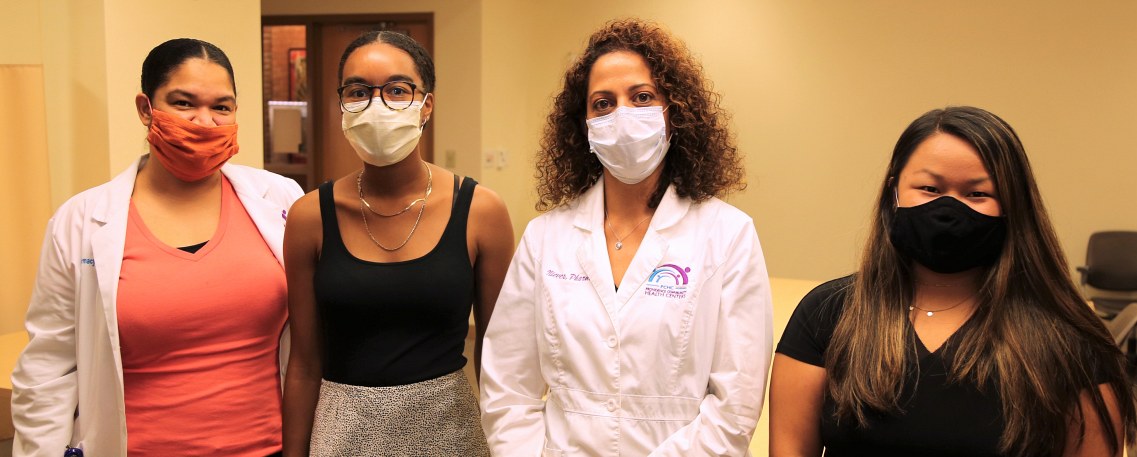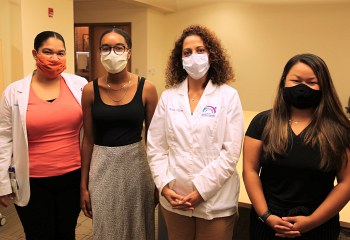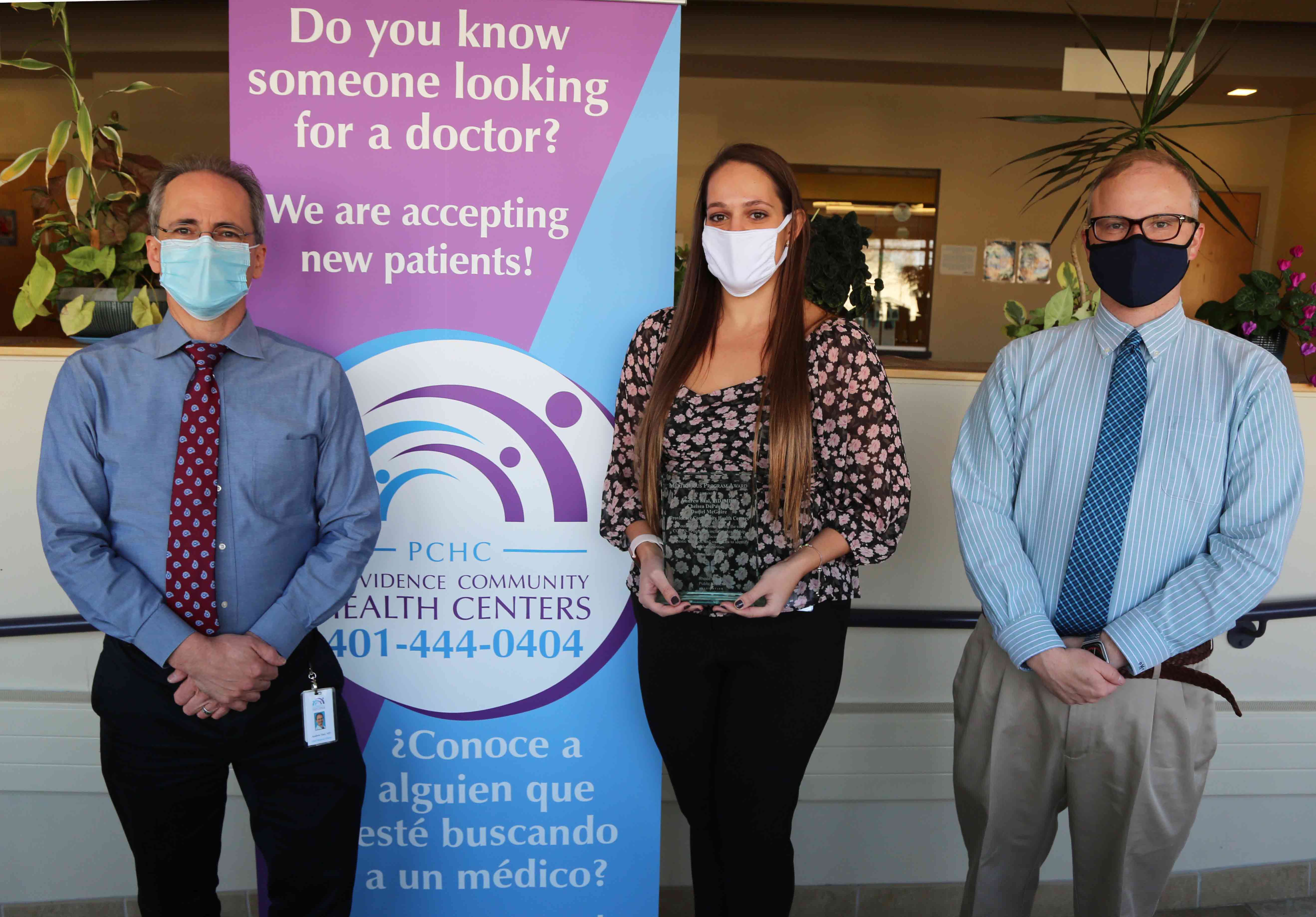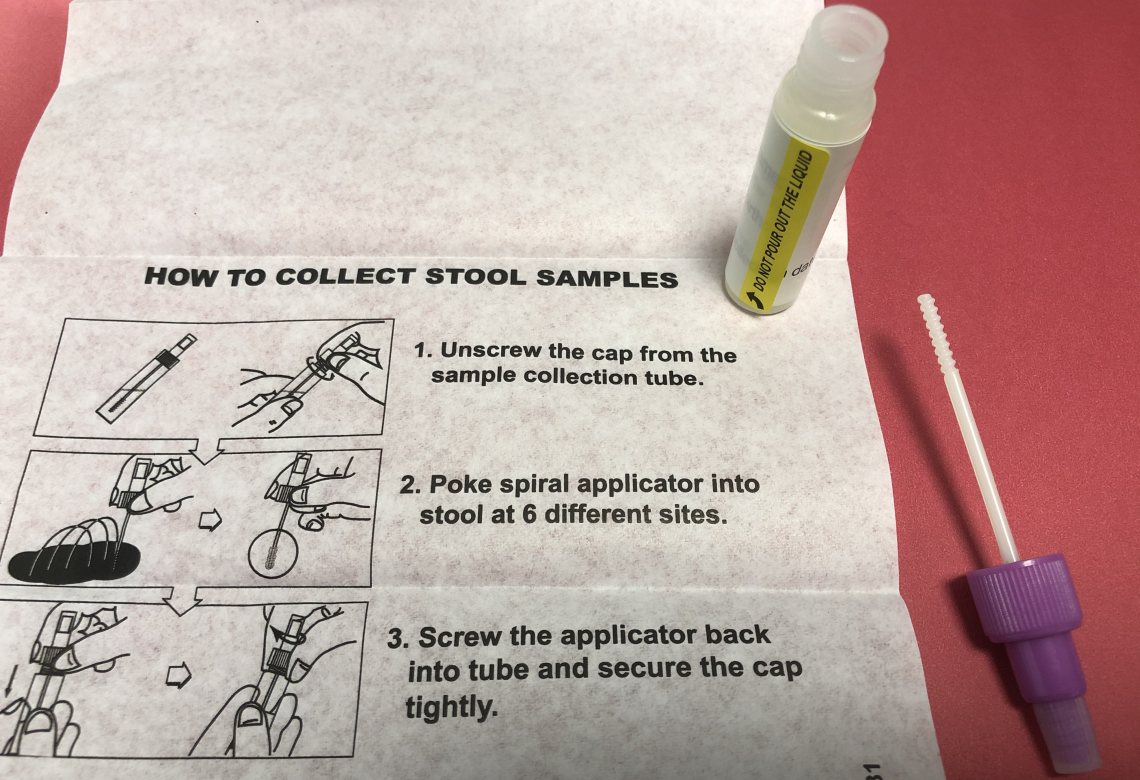
Businesses and schools everywhere had to adjust how they operate over the last several months as the COVID-19 pandemic swept the country. For a group of interns – and their supervisors -- at The Providence Community Health Centers, it meant finding new, mostly virtual, ways to contribute.
Many of the interns were originally going to work at a second COVID-19 testing site. When that site did not come to fruition, new duties were designated to the 12 interns, whose work was coordinated and supervised by a variety of PCHC staff including Dr. Andrew Saal, Chief Medical Officer, and various members of the clinical, administrative, and human resources team.
“Internships are invaluable to young people looking to gain hands-on experience,” said Cheryl Perry, Vice President, Chief Marketing & Human Resources Officer at PCHC. “Their contributions help us advance our cause of creating a healthier community. This group of interns was impressive and enthusiastic and we look forward to seeing what they will do next.”
Kathryn Sullivan, who just started her senior year at North Carolina State University, was originally slated to work in the second COVID testing tent. Instead, she went to work with Dr. Jonathon Gates, Chief Medical Officer for Accountable Care, and Daniel McGuire, Director of Population Health. Here, she learned about the care gap that exists locally and nationally. She helped outreach to patients, particularly those who needed colorectal cancer screening.
Kathryn, who is originally from North Kingstown, is now applying to Physician Assistant programs as the next step in her educational journey.
Katelyn Loyo, a Providence native who graduated from E-Cubed Academy, worked directly with Graciela Morales, patient engagement coordinator, as well as other staff members. Graciela taught Katelyn how to work with patients to best direct them to resources inside and outside of PCHC.
“While speaking to patients, they talked about how happy they are with the services PCHC offers,” said Katelyn. “That’s very important for patients to feel like they’re in great hands.”
Katelyn wants to pursue a career in nursing, following in the footsteps of her grandmother who is a nurse in Guatemala.
Benjamin Coleman from North Kingstown also worked in the Accountable Care Organization with Dr. Gates, Dan McGuire, and Graciela Morales. There, his eyes were opened to PCHC’s efforts to address a patient’s health before they get sick. “Working on the ACO team taught me a lot about preventive health care and the importance of prioritizing one’s health year-round through recommended screenings, a proper diet, and an active lifestyle,” he said.
As part of the colorectal screening effort at PCHC, Ben spent time on the phone with patients, learning more about their specific challenges and he says, “the barriers that often impede Americans from receiving access to medical care.” Ben is interested in attending medical school after graduating from the University of Miami.
Amy Burt, a junior at Unity College in Maine, served her internship updating policies and performing data entry. She worked in a variety of roles and was supervised by several PCHC staff members. No matter the assignment, she said there was one consistent theme.
“The mission statement of PCHC shined through in all the tasks I was assigned,” she said. “Three core values stood out to me throughout my experience: cultural competency, compassion, and respect. All of these actions promoted a productive and safe environment.”
Amy plans on becoming a licensed clinical social worker but is still open to other career options. “I know whatever I do,” she said, “I will stay true to my goal of helping others.”
A brother and sister from North Kingstown -- Nicolette and Maximino Naya -- spent the summer interning at PCHC.
Nicolette, who just started her senior year at the University of Connecticut, thought she was returning to an internship she held previously at Tiffany & Co. When that was cancelled due to the pandemic, she took on an internship at PCHC, learning about Electronic Health Records under the guidance of Sharon Joseph, Director of Health Information and HIPPA Compliance. While Nicolette said she is not considering a career in healthcare, she learned a lot over the summer and grew appreciative of the work that goes on every day at PCHC.
Max, a student at Stetson University in Florida, intended to spend the summer studying overseas but his plan was derailed because of COVID-19. Instead, he interned at PCHC, assisting with the organization’s marketing and social media efforts, working closely with Susana Conklin, Chief of Staff. As Max is considering a career in marketing or sales, it was a perfect fit at an organization where he could feel good about contributing. “I saw firsthand that PCHC is always actively trying to better itself to be able to best serve their community,” said Max.
Elizabeth Pekar from North Kingstown is a senior at The George Washington University. She worked with clinical pharmacist Lillian Nieves, who she describes as “extremely knowledgeable, kind, and a great teacher,” during her internship. Elizabeth, who wants to become a Physician Assistant, said she learned a lot during her time in the pharmacy including “common practices and protocols to detailed population health projects that Lillian is working on to better the PCHC community. I have also learned about the amazing work that PCHC is doing to provide equal access to healthcare, which is not only extremely encouraging, but inspiring.”
Elizabeth is pictured on the right, along with (from left to right) Lea Diaz, PCHC Certified Technician II, Gabrielle Davis, Pharmacy Summer Intern, and clinical pharmacist Lillian Nieves.
Kristina Krashovats, who is originally from Russia and attends Truman State University in Missouri, learned about the multiple factors that can influence health care finances. She was not one of the summer interns originally targeted to work in the COVID tent; instead, she applied for a competitive internship slot at PCHC and was chosen because of her background and interest in finance.
While she has focused on banking and other industries as a finance major, it was her first time working in health care. “Before the internship, I prepared by reading “accounting for healthcare” textbooks,” said Kristina. “All the numbers were given to me. For example, revenue was simply the product of charge per visit and total number of visits.”
Her real life experience was different as Kristina learned much more about analyzing statistics, profitability, and even anatomy to more deeply understand the world of healthcare finance.
“I had to figure out all the potential cost sources and activities involved in the process of treatment, and collaborate with specialists like an opthalmologist to ensure my assumptions and research conclusions were valid,” said Kristina. “This was definitely a new and exciting experience for me.”
 Anastasia Paraliticci, a North Kingstown native who is a student at the University of Rhode Island, worked over the summer as an intern in community outreach. She helped “inform the public about how to access health care, services which many people were not aware of”, while working with Adriana Vargas, Director of Community Outreach. Anastasia enjoyed speaking Spanish with Adriana (which she says is “something I don’t get to do very often outside of my household.”) She also saw the importance of relationships in community outreach, noting that Adriana “is very outgoing and knows everyone in Providence and all surrounding communities.”
Anastasia Paraliticci, a North Kingstown native who is a student at the University of Rhode Island, worked over the summer as an intern in community outreach. She helped “inform the public about how to access health care, services which many people were not aware of”, while working with Adriana Vargas, Director of Community Outreach. Anastasia enjoyed speaking Spanish with Adriana (which she says is “something I don’t get to do very often outside of my household.”) She also saw the importance of relationships in community outreach, noting that Adriana “is very outgoing and knows everyone in Providence and all surrounding communities.”
“Student interns always bring a fresh perspective,” said Adriana of her time mentoring Anastasia and other interns. “Their analytical, writing, research, project and interpersonal skills make a great difference in the work being done here. This has been the case with Anastasia who brought many skills, and most important, a wiliness and readiness to support the advancement of many projects.”
 Dr. Mansi Kachalia James, a board certified Allergist/Immunologist, has joined the Providence Community Health Centers and will work from our new specialty clinic site at Randall Square, where she hopes to begin offering a wide variety of services including environmental skin testing, drug and food allergy testing and oral challenges.
Dr. Mansi Kachalia James, a board certified Allergist/Immunologist, has joined the Providence Community Health Centers and will work from our new specialty clinic site at Randall Square, where she hopes to begin offering a wide variety of services including environmental skin testing, drug and food allergy testing and oral challenges.







 Anastasia Paraliticci, a North Kingstown native who is a student at the University of Rhode Island, worked over the summer as an intern in community outreach. She helped “inform the public about how to access health care, services which many people were not aware of”, while working with Adriana Vargas, Director of Community Outreach. Anastasia enjoyed speaking Spanish with Adriana (which she says is “something I don’t get to do very often outside of my household.”) She also saw the importance of relationships in community outreach, noting that Adriana “is very outgoing and knows everyone in Providence and all surrounding communities.”
Anastasia Paraliticci, a North Kingstown native who is a student at the University of Rhode Island, worked over the summer as an intern in community outreach. She helped “inform the public about how to access health care, services which many people were not aware of”, while working with Adriana Vargas, Director of Community Outreach. Anastasia enjoyed speaking Spanish with Adriana (which she says is “something I don’t get to do very often outside of my household.”) She also saw the importance of relationships in community outreach, noting that Adriana “is very outgoing and knows everyone in Providence and all surrounding communities.”






